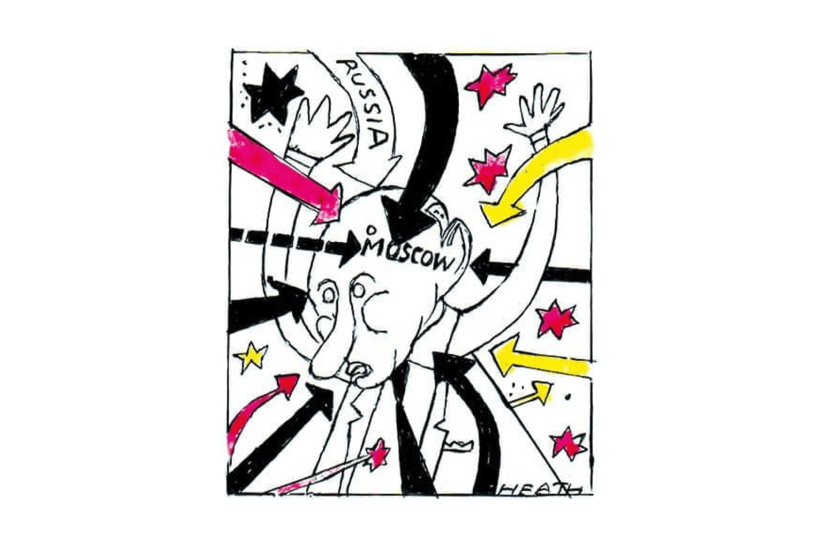When allied military operations go well or badly, we very quickly hear about them. But what about sanctions? It is about time that we started to ask: are they hitting their target, or are some of them slewing off, out of control, straight into civilian targets?
Notionally, sanctions have been a success – or at least they seemed to be initially. The rouble and Russian stock market collapsed. But then the rouble recovered strongly, and the stock market, too, has staged some sort of recovery since it reopened. What seemed like a pretty comprehensive boycott by western companies turns out to be rather less complete than many might imagine.
Yale School of Management has put together a very useful list of western and multinational companies that have either withdrawn from Russia completely, withdrawn partially, have suspended operations temporarily or have withdrawn from Russia for good. It lists 100 companies that are still doing business in the country pretty well as they were before the invasion of Ukraine. They include those whose businesses are hotels, drinks, food, car hire, cyber security and software, energy, and building supplies. Given the speed at which activists react on Twitter whenever a large corporation breaches western progressive ideology, it is remarkable how few of the companies on the Yale list have been subject to widespread public disapproval.
Yet at the same time, there are reports from within Russia of shortages of essential medicines. These are not supposed to be included in sanctions, and indeed several pharmaceutical firms including Eli Lilley, Pfizer and Bayer have said that they will continue to supply to the country. That is not necessarily easy, however, when planes are not flying and ships are not sailing. Associated Press has been reporting shortages of many essential medicines, as are patient groups. The Russian healthcare regulator Roszdravnadzor, however, claims that the shortage may have more to do with people panic-buying rather than a genuine shortage.
When we first started sanctioning Russia after the annexation of Crimea in 2014 the point of sanctions was supposed to be to target the wealthy elite around Putin while leaving ordinary Russians unscathed. While we might want more widespread sanctions now, we need to be careful that we are not cutting off medical treatment and other essential supplies from the sort of people whose support we need to put pressure on, and ideally topple, the Putin regime. At the moment, sanctions are certainly helping to push up energy prices in Britain, making life more difficult for millions of people. But there is scant evidence at the moment that they are precision-bombing their targets without hitting innocent bystanders.
Got something to add? Join the discussion and comment below.
Get 10 issues for just $10
Subscribe to The Spectator Australia today for the next 10 magazine issues, plus full online access, for just $10.





















Comments
Don't miss out
Join the conversation with other Spectator Australia readers. Subscribe to leave a comment.
SUBSCRIBEAlready a subscriber? Log in